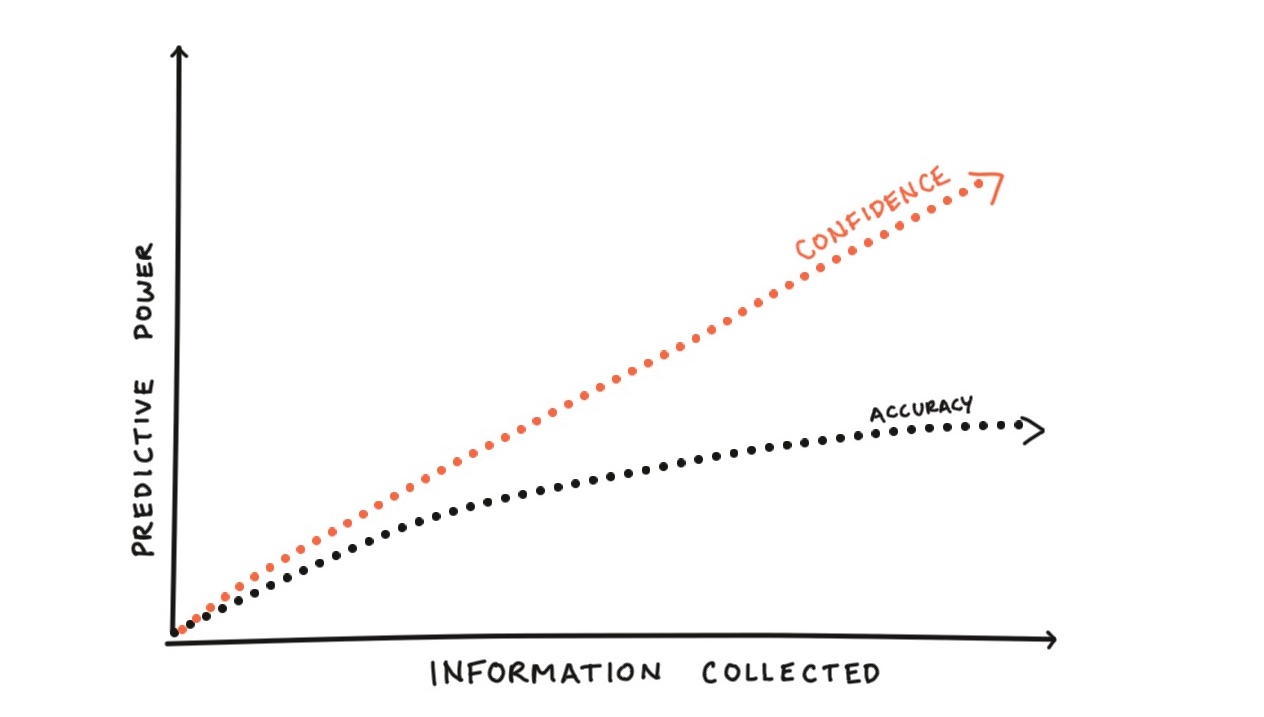The Curse of Excess Information
In the age of endless information, what if more information isn’t actually a good thing?
In The Black Swan, Nassim Taleb asserts that additional information can actually be an impediment to forming knowledge. Instead of deepening our understanding of an issue, it can falsely deepen our confidence in pre-existing ideas and opinions. He describes this type of information as “toxic”.
One of the most striking examples of this phenomena was a study run by Paul Slovic with horse handicappers, the odds-makers in horse-racing1. Each handicapper was given access to 88 variables, and then asked to choose five variables to judge 40 different races. They were then given an additional opportunity to select 10 variables and judge another 40 races. This was repeated with 20 variables, and finally 40 variables.
Common sense would lead you to believe that accuracy would improve with more information. However, Slovic observed the exact opposite. Inconsistency increased as the handicappers were given access to more information. And even worse was the fact that the confidence of the handicappers increased as their access to information increased. More information increased confidence, without increasing understanding.
Another study referenced by Taleb, looked at the confidence levels of psychologists as they received more information about a case 2. The psychologists were gradually given more information about a young man and were asked to share confidence in their clinical decisions as they received the additional information. Much like the horse-handicappers, their confidence in their own judgements increased as they received more information, while the actual accuracy of their predictions quickly hit a ceiling.
Both examples show that judgemental accuracy is bounded, but confidence in one’s judgements are unbounded.

This poses a truly challenging problem. The more of an expert we become on a topic, the more overconfident we become in our own opinions and judgements. Instead of using more information to broaden our understanding, we simply shoe-horn it into our own pre-existing mental models. Any information that is inconsistent with these models is ignored or incorrectly weighted.
We’d like to think that our brains are capable of easily synthesizing multiple pieces of information into a coherent whole. However we ultimately use much less information than we think we do to make judgements. And we are often wrong about how we weigh these pieces of information in our head.
So what are we to do? I think awareness is perhaps the only tool we have to combat these biases in ourselves and others. Here are some things to constantly keep in mind:
- Recognize the limitations of your own judgments
- Be skeptical of the confidence of experts
- Seek out and ponder information that contradicts your beliefs
- Beware of your own confidence, and watch for rapid increases in confidence